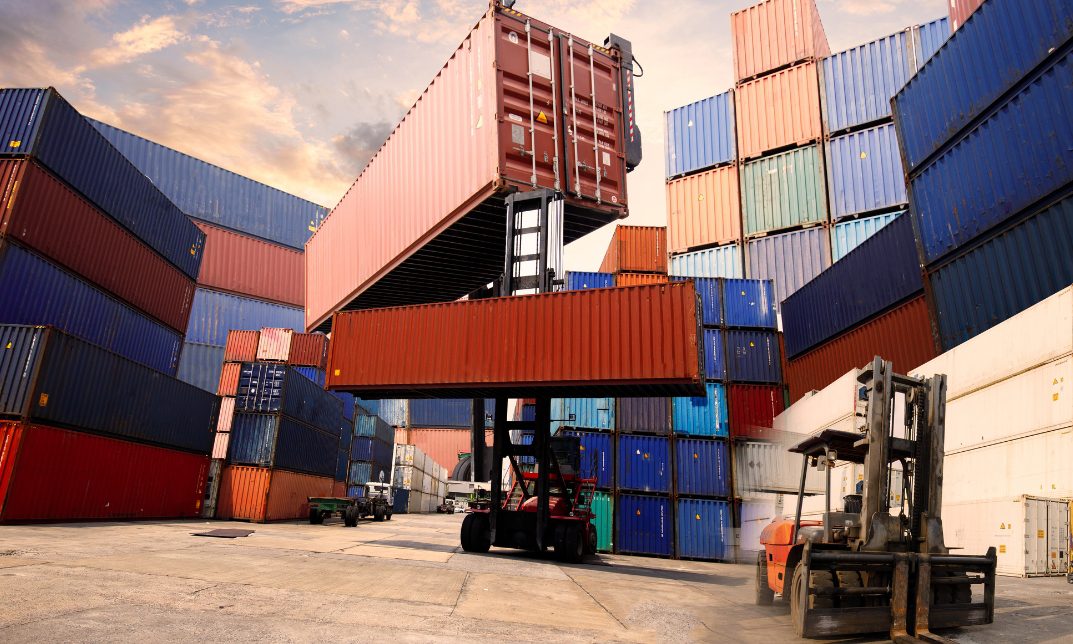
Becoming a transport manager is the best way to start your career in the transportation and logistics industry. To start your journey as a transport manager, you will need a bachelor’s degree, CPD certification, and key skills. So, if you don’t know where to begin, then this blog is the perfect guideline for you!
What is a Transport Manager?
A transportation manager oversees the movement of goods, materials, or people from one place to another. They’re in charge of organising and coordinating this movement. They also plan routes, manage schedules, and ensure everything happens on time and within budget.
Transportation managers work in various industries, such as logistics, manufacturing, and retail. They might work for transportation companies, warehouses, or significant businesses. Their job is to keep things running smoothly and ensure that deliveries happen without any problems.

What Does a Transport Manager Do?
A transport manager does various types of work in maintaining an organisation’s logistics and transport facilities. More specifically, some of the responsibilities that a transport manager performs are:
- Planning and organising transportation to make sure things arrive on time.
- Making rules and procedures for transportation to follow safety rules.
- Looking after vehicles, fixing them when needed, and making sure they’re safe to drive.
- Hiring, teaching, and supervising drivers and staff.
- Keeping track of expenditures and progress to find ways to save money and improve performance.
- Talking with suppliers and customers to sort out any problems and make sure they’re happy.
- Making sure everyone follows the law, such as how long drivers can work and keeping vehicles clean.
- Doing things to help the environment, such as using less fuel and producing less pollution.
- Handling emergencies, accidents, and problems quickly and safely.
- Learning about new things happening in the industry to make transportation better.
How to Become a Transport Manager: Necessary Qualifications
Becoming a transport manager requires solid educational requirements. Moreover, having experience in this industry is also necessary. In addition, CPC certification is also needed. Moreover, other elements, such as industry knowledge, can increase your possibility of becoming a transport manager. Here’s a breakdown of the two most important things needed to start as a transport manager:
Education and Certification
- Earn a bachelor’s degree: A bachelor’s degree is necessary to become a transport manager. Moreover, a degree in logistics, supply chain management, business administration, or a related field can be beneficial.
- Earn a certificate: Employers may prefer candidates with relevant certifications for the transport manager position. Thus, having a CPC certificate in the transportation and logistics sector is an advantage. Moreover, this certificate will increase the value of your resume.
Industry Knowledge
A comprehensive knowledge of transportation management solutions and relevant regulations is required for potential transport managers. To succeed in this profession, keeping up with industry trends, technological advancements, and regulatory changes is significant.
Experience
- Entry-level Positions: Start your career in transportation by gaining experience in entry-level positions such as logistics coordinator, transportation assistant, or dispatcher. These roles provide valuable insights into the industry and help you develop important skills.
- Internships and Apprenticeships: Consider pursuing internships or apprenticeships with transportation companies or logistics firms. As a result, it will help you gain hands-on experience and create a network with industry professionals. These opportunities could set the path for further career advancements.
Online Course
Online courses are a convenient and flexible way to earn certification as a transport manager. Moreover, there are many online courses available for transport managers. Having a certificate in this sector can greatly help with your resume.
In fact, School of Health Care offers many easy-to-learn and effective courses for transport managers! You can enrol with us and start your career easily. Some topics you might learn in these courses include:
- Transport Operations
- Transport Legislation
- Logistics Management
- Fleet Management
- Transport Economics
- Environmental Considerations
- Risk Management
- Customer Service
What Skills Does a Transport Manager Need?
Becoming a transportation manager doesn’t only require education; skills are also needed. Moreover, this profession demands excellent customer service abilities, such as following up on client complaints or other issues.

They must also have strong multidisciplinary skills to work with people from various industries to help the organisation develop. Maintaining accuracy in a fast-paced setting where shipping options may change at the last minute is also important. A breakdown of the necessary skill sets to become a transport manager is given below:
- Regulatory Knowledge: Understand laws and regulations governing transportation and logistics. In the UK, this includes agreement with regulations set by the Driver and Vehicle Standards Agency (DVSA) and the Traffic Commissioner.
- Organisational Skills: Ability to manage schedules, routes, and resources efficiently. This includes planning routes, coordinating deliveries, and scheduling maintenance for vehicles.
- Communication Skills: Effective communication is vital for communicating with drivers, customers, suppliers, and regulatory authorities. Clear verbal and written communication delivers smooth operations.
- Problem-Solving Skills: Transport managers must be able to think on their feet and resolve issues quickly. This could range from dealing with vehicle breakdowns to addressing customer complaints or resolving conflicts among team members.
- Financial Management: Understanding budgeting, cost control, and financial reporting is essential for managing transport operations cost-effectively. This includes monitoring fuel costs, maintenance expenses, and other operational expenditures.
- Managerial Skills: Transport managers need organisational skills to motivate and manage a team of drivers and support staff. Being able to inspire, delegate tasks, and provide guidance is important for team success.
- Attention to Detail: Transport operations involve numerous details, from tracking shipments to ensuring compliance with regulations. Being detail-oriented helps prevent errors and ensures operations run smoothly.
- Technological Proficiency: Transportation management systems require familiarity with transport management software and GPS tracking systems. These tools help with route planning, vehicle tracking, and performance monitoring.
- Customer Service Skills: Providing excellent customer service is essential for retaining clients and building a positive reputation. Transport managers must try to fulfil or surpass customer expectations while quickly solving any issues.
- Adaptability: The transportation industry constantly changes regulations, technology, and market conditions. Transport managers must be adaptable and willing to accept change to stay ahead in the field.
How Much Does a Transport Manager Earn?
In the UK, a transport manager’s salary varies depending on criteria such as experience, location, and industry. However, on average, a transport manager in the UK may expect to earn between £35,000 and £55,000 annually. Those with significant skills or working in high-demand industries may earn £70,000 annually. Additionally, incentives, benefits, and company size may impact the entire compensation package.

0 responses on "How to Become a Transport Manager"